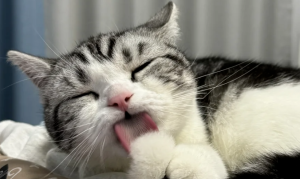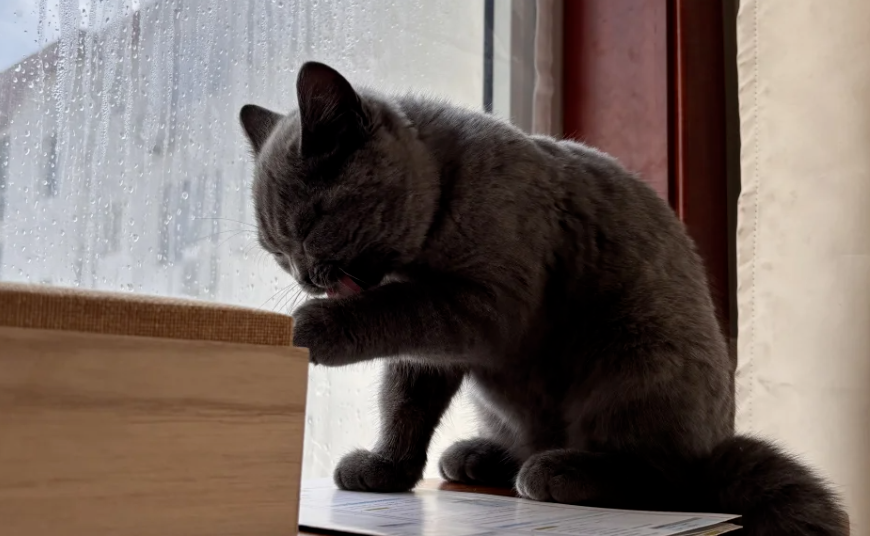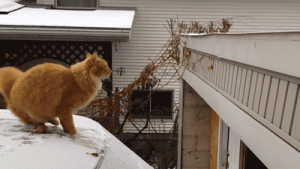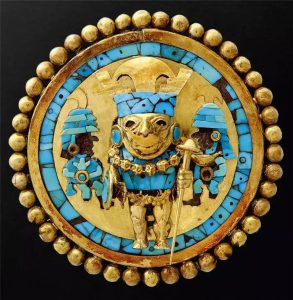Do you ever enjoy watching your cat lick its little paws?After licking its paws, it goes on to groom its whole body — so serious, almost like it’s taking a bath, making sure every inch of fur is spotless.But sometimes, when you see your cat licking for a really long time, you can’t help but wonder: Is something wrong? Could it be sick?So today, let’s take a closer look at why cats love to lick their paws so much!
-
Cats Are Grooming Themselves
A cat’s tongue is covered with tiny, keratinized barbs — a unique structure that works just like a miniature comb and brush. These rough little spines help cats easily remove dust, dirt, and food debris stuck on their paws.From a hygiene perspective, a cat’s paws constantly touch the ground and various objects, making them prone to picking up bacteria and parasite eggs. By licking and grooming their paws, cats can effectively reduce bacterial growth and lower the risk of infection.Take my orange tabby for example — every time he knocks over his food bowl and gets crumbs all over his paws, he’ll immediately find a quiet corner, stretch out his tongue, and start licking quickly and firmly back and forth. In just a few minutes, his paws are spotless again — truly a little clean freak champion!Keeping their paws clean with their tongue isn’t just about appearance; it’s also an essential way for cats to maintain their health.
-
Their Paws Feel Itchy
A cat’s paws are covered with very sensitive skin. When fungal or bacterial infections, or mite infestations occur, the irritated skin cells release histamines and other chemicals that stimulate nerve endings — which causes the cat to feel itchy.My neighbor’s kitten once developed an allergic reaction after using the wrong type of cat litter. Tiny red rashes appeared on its paws, and it kept licking and scratching all day long until the once-smooth fur became tangled and messy.Allergies can also trigger paw itching — for example, from exposure to certain cleaning products. Although cat saliva contains some antibacterial components, excessive licking can make the skin damp, creating a perfect environment for fungi and bacteria to thrive. This can lead to a vicious cycle of itching and infection.So if you notice your cat obsessively licking its paws, it’s best to check for any underlying skin problems and take it to the vet as soon as possible.

-
Cats Are Shedding the Outer Layer of Old Claws
A cat’s claws are made up of multiple layers of keratin. As they grow, the outer keratin layer gradually ages, hardens, and loses vitality. Through licking and gentle nibbling, cats help break down this outer layer, allowing it to fall off and make room for new, healthy claws to grow.My friend’s senior cat often lounges in the sun, lazily licking its paws and occasionally nibbling them with its teeth. Once, I looked closely and actually saw a tiny piece of old claw come off!During this process, blood circulation in the paws increases, promoting stronger and healthier claw growth. Just like how snakes shed their skin to renew themselves, cats maintain sharp and healthy claws by naturally “shedding” the old ones.
-
Cats Lick Their Paws to Relieve Stress
From an animal behavior perspective, paw licking is a form of stereotypic behavior — a repetitive action cats use to calm themselves. When cats feel nervous or anxious, such as when facing a new environment, loud noises, or the presence of another animal, their brains release stress hormones.The repetitive motion of licking stimulates the release of endorphins — the so-called “happy hormones” — which help cats relax and feel emotionally comforted.For example, my cat once got terrified during a thunderstorm. It trembled all over and hid under the bed. After the thunder stopped, it came out and sat quietly, licking its paws over and over, as if trying to “lick away” its fear.Just like how we humans might chew gum or squeeze a stress ball to calm ourselves down, cats use paw licking as their own natural way to soothe anxiety.
If your cat doesn’t lick its paws too often, that’s actually a good sign — it means your furry baby is healthy, and the licking is simply part of its normal grooming routine.However, if your cat licks its paws too frequently, and you notice that the paw pads look discolored, dirty, or constantly damp, it could be a sign of interdigital dermatitis (paw inflammation). In that case, keep a close eye on it and consider visiting your vet for a check-up.





